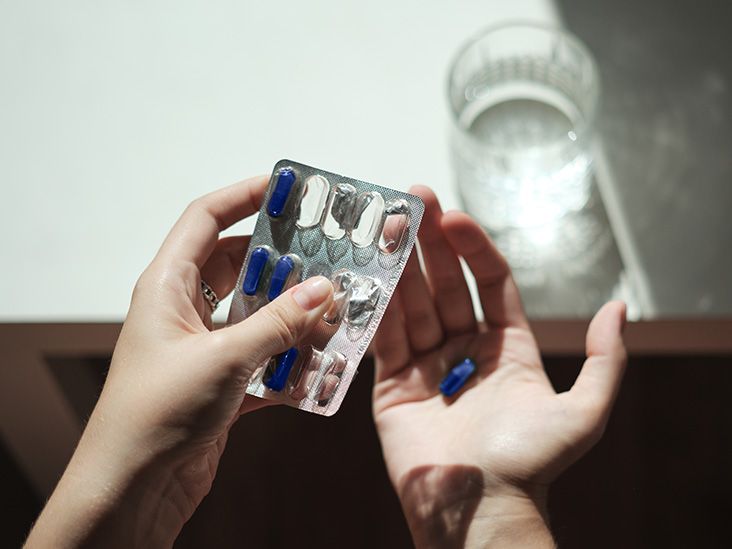Some tips for managing dizziness from iron deficiency anemia include adding foods containing iron to the diet, lying down, keeping hydrated, and more.
Iron deficiency anemia is the
Dizziness is one of its main symptoms, along with extreme tiredness, pale skin, and cold feet and hands. The body needs iron to make hemoglobin in the blood, which is vital for transporting oxygen around the body.
This article explores a range of tips for people aiming to reduce dizziness due to iron deficiency anemia. It also discusses when someone should consider seeing a healthcare professional.
A note about sex and gender
Sex and gender exist on spectrums. This article will use the terms “male,” “female,” or both to refer to sex assigned at birth. Click here to learn more.

According to the United Kingdom’s National Health Service (NHS), people should be able to get as much iron as they need every day by eating a varied diet. Increasing iron intake should help prevent or manage dizziness due to iron deficiency anemia.
Good
- dried fruit
- fortified cereal and bread
- kidney beans
- lean meat
- lentils
- nuts
- peas
- poultry
- raisins
- seafood
- white beans
The following table lists the recommended daily iron intake depending on a person’s age, sex, and other factors.
| Life stage | Recommended amount |
|---|---|
| Infants | Birth to 6 months: 0.27 milligrams (mg) Infants 7–12 months: 11 mg |
| Children | 1–3 years: 7 mg 4–8 years: 10 mg 9–13 years: 8 mg |
| Teens | Males ages 14–18 years: 11 mg Females ages 14–18 years: 15 mg |
| Adults | Males ages 19–50 years: 8 mg Females ages 19–50 years: 18 mg Adults ages 51 years and older: 8 mg |
| Pregnancy | Pregnant teens: 27 mg Pregnant adults: 27 mg |
| Breastfeeding | Breastfeeding teens: 10 mg Breastfeeding adults: 9 mg |
Doctors may recommend iron supplements for people with iron deficiency anemia. A person should always speak with a healthcare professional before taking any supplements.
Iron supplements can
People who
- people who have heavy periods
- pregnant individuals
- young children
- people who follow a vegan or vegetarian diet
- people who donate blood frequently
- people who have certain health conditions, like gastrointestinal disorders, cancer, and heart failure
People with severe iron deficiency
- ferrous sulfate
- ferrous gluconate
- ferric citrate
- ferric sulfate
The United States Food and Drug Administration
Vitamin C plays a crucial role in iron absorption.
The
- citrus fruits, like orange and grapefruit, as well as their juices
- baked potatoes
- broccoli
- cantaloupe
- fortified foods and beverages
- kiwifruit
- red and green bell peppers
- strawberries
- tomatoes
Eating these raw where possible can help to ensure maximum intake, as cooking and storing them for long periods may reduce vitamin C content.
During moments of dizziness, it can help to lie down until the dizzy sensation passes. Then, get back up slowly.
This can help reduce the risk of falls or accidents during episodes of dizziness. Anemia can also contribute to dizziness upon standing up quickly, which is a symptom of orthostatic hypotension. According to
Orthostatic hypotension from anemia often lasts less than 15 seconds, according to Harvard Medical School. It occurs because blood pools in the legs when lying or sitting. This resolves automatically, so it can help to wait and rise slowly. Clenching the leg muscles while rising can also reduce dizziness during orthostatic hypotension.
The NHS recommends drinking plenty of water to reduce dizziness. If a person does not drink enough water, their
People with anemia, which already
If dizziness is a frequent problem while living with iron deficiency anemia, people may want to avoid substances that can make dizziness worse, such as alcohol, cigarettes, and coffee. Plus, these substances may also interact directly with anemia to make symptoms worse.
For example, a 2019 review suggests that smoking can reduce vitamin C levels, which can reduce iron absorption in the body, raising a person’s likelihood of developing iron deficiency anemia.
Drinking coffee and green tea might also reduce non-heme iron absorption, according to a
According to the NHS, people with dizziness due to anemia should consult with a healthcare professional in the following circumstances:
- They have concerns about the dizziness.
- It does not resolve or keeps returning.
- Speaking or hearing is becoming more difficult.
- Tinnitus, or hearing sounds with no external stimulus, has developed in the ears.
- They are experiencing double vision, blurry vision, or other eyesight changes.
- They are experiencing weakness in the arms, legs, or face
- They experience other symptoms, such as pulse changes, fainting, headaches, or nausea.
Additionally, people should always speak with a doctor before starting taking any iron supplements or making significant changes to their diet.
If people experience dizziness due to iron deficiency anemia, they will need to treat the underlying condition. For example, they may need to include more iron-rich foods in their diet or take iron supplements. Eating foods containing vitamin C can also support iron absorption.
People should make sure to drink plenty of water and lie down if they feel dizzy. Avoiding substances that increase dizziness or the risk of iron deficiency is also advisable.
If dizziness and other iron deficiency anemia symptoms persist or get worse, a person should speak with a doctor.


